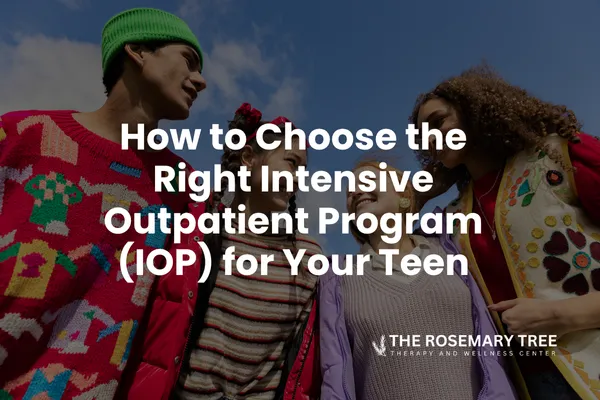
How to Choose the Right Intensive Outpatient Program (IOP) for Your Teen
Introduction: The Importance of a Good Fit
Selecting the right Intensive Outpatient Program (IOP) for your adolescent is crucial for successful treatment. An IOP bridges the gap between weekly therapy and inpatient care, but not all programs are the same. The following sections outline key factors to consider, helping you make an informed choice tailored to your child’s needs.
Clinical Specializations and Age Appropriateness
Start by identifying programs that specialize in your teen’s primary challenges—whether it’s anxiety, depression, trauma, substance use, or other concerns. Some IOPs focus on specific age groups, such as adolescents or young adults, ensuring that the therapeutic content, peer interactions, and activities are developmentally appropriate. Make sure the program offers services aligned with your teen’s diagnosis and life stage.
Staff Credentials and Experience
The quality of care depends largely on the expertise of the clinicians. Look for IOPs staffed by licensed mental health professionals—such as psychologists, licensed professional counselors, or marriage and family therapists—who have experience working with adolescents. Ask about their training in evidence-based practices and whether they receive ongoing supervision and professional development.
Therapeutic Approaches and Curriculum
Different IOPs emphasize various therapeutic modalities. Evidence-based approaches like Cognitive Behavioral Therapy (CBT), Dialectical Behavior Therapy (DBT), and Acceptance and Commitment Therapy (ACT) are common. Some programs incorporate creative therapies—art, music, nature-based experiences—or skills training in mindfulness, emotion regulation, and social skills. Ask for details about the program’s curriculum, how progress is measured, and the balance between group sessions, individual therapy, and skill-building activities.
Family Involvement and Support
Family participation plays a pivotal role in the success of adolescent treatment. Inquire about how often the program engages parents or guardians through family therapy sessions, educational workshops, or progress meetings. A strong program will provide guidance on improving communication, setting boundaries, and supporting your teen’s growth at home.
Program Logistics: Schedule, Location, and Environment
An IOP’s schedule needs to fit your family’s routines. Confirm the days and hours of treatment, the duration of the program (typically 6–12 weeks), and whether sessions conflict with school or work. Consider the program’s location and the commute—consistency is vital. Visit the facility if possible to ensure it feels welcoming, safe, and suited to your teen’s needs.
Outcomes, Aftercare, and Continuity
Ask potential programs how they track outcomes. Do they use standardized assessments or goals-based evaluations? What happens after your teen completes the program—do they offer step-down care, like weekly outpatient therapy or alumni groups? A clear aftercare plan helps maintain progress and prevents relapse.
Financial Considerations and Flexibility
Treatment costs vary widely. Ask about insurance coverage, sliding-scale fees, payment plans, and financial assistance. Some programs, like The Rosemary Tree’s IOP, offer creative financing options to reduce financial barriers. Clarify what is included in the cost—therapy sessions, psychiatric consultations, activities—and whether there are additional fees.
Making the Final Decision
Choosing the right IOP involves balancing clinical excellence with practical considerations. Compile a list of programs, visit facilities, and talk with clinicians and alumni families. Trust your instincts and your knowledge of your teen. A program that aligns with your values, meets your teen’s clinical needs, and feels supportive to your family is more likely to lead to lasting change.
Conclusion: Empowering Your Decision
The process of finding the right Intensive Outpatient Program can be daunting, but focusing on these key elements will help you navigate your options confidently. Prioritize programs that specialize in your teen’s needs, employ skilled clinicians, engage families, and offer clear curricula and aftercare plans. With careful consideration, you’ll find an IOP that supports your teen’s journey toward healing and resilience.


